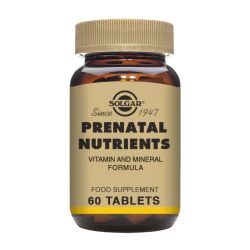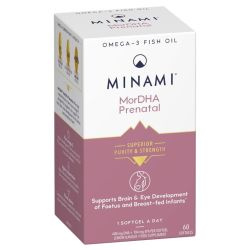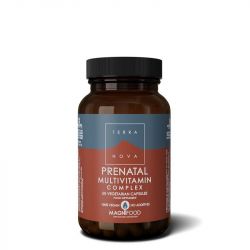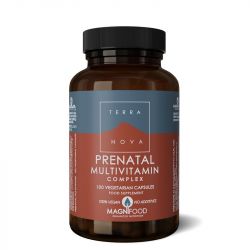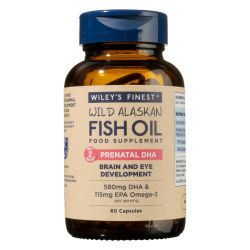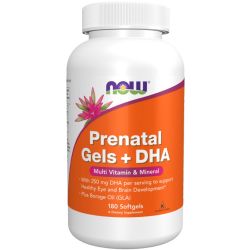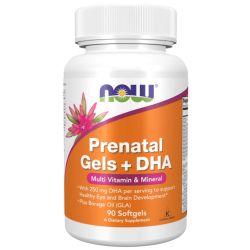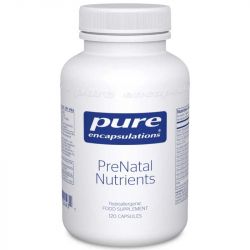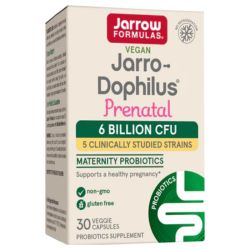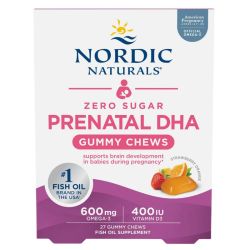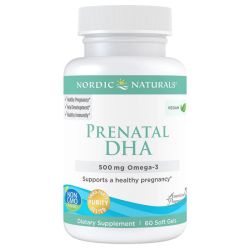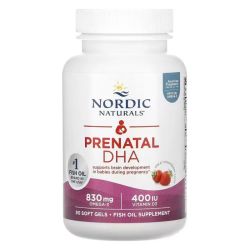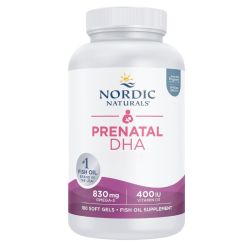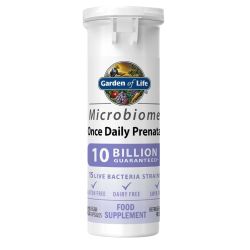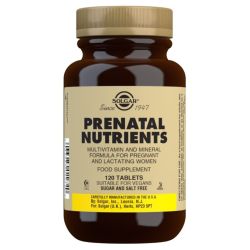Prenatal vitamins
Prenatal vitamins are specially formulated supplements designed to support the health of both mother and baby during pregnancy. They typically contain a combination of essential nutrients such as folic acid, iron, calcium, and DHA, which are important for the development of the baby and the well-being of the mother. Folic acid helps reduce the risk of neural tube defects, while iron supports the body's increased blood volume during pregnancy. These vitamins can help fill any nutritional gaps and ensure both mother and baby receive the necessary nutrients throughout the pregnancy.
Shop All Pregnancy Support Supplements | Maternity & Pregnancy Skincare
FAQ's Prenatal Vitamins & Supplements
What do prenatal vitamins do?
Prenatal vitamins are specially formulated to support both maternal health and fetal development during pregnancy. They provide essential nutrients, including folic acid, iron, calcium, and DHA, to ensure the mother's increased nutritional needs are met. Folic acid helps reduce the risk of neural tube defects, while iron supports the increased blood volume during pregnancy. These vitamins help fill nutritional gaps and promote a healthy pregnancy, contributing to overall well-being for both the mother and baby.
Is it okay to take prenatal vitamins if you are not pregnant?
While prenatal vitamins are specifically designed for pregnant women, it is generally safe to take them if you are not pregnant, as they provide important nutrients like folic acid and iron.
When should I start taking prenatal vitamins?
It is recommended to start taking prenatal vitamins at least one month before conception and continue throughout pregnancy. Starting early ensures your body has enough folic acid, which is crucial for neural tube development in the early stages of pregnancy. If you are planning to conceive, taking prenatal vitamins can also prepare your body with essential nutrients for a healthy pregnancy.
Do you have to take prenatal vitamins throughout the whole 9 months of pregnancy?
Yes, it is generally advised to continue taking prenatal vitamins throughout the entire pregnancy. Nutrient needs increase as the baby develops, and prenatal vitamins help ensure that both the mother and baby receive adequate vitamins and minerals. Regular use of prenatal vitamins helps support a healthy pregnancy and can prevent nutrient deficiencies that might affect both the mother and child.
Are prenatal vitamins essential?
Prenatal vitamins are highly recommended during pregnancy to ensure both mother and baby receive the necessary nutrients. While a balanced diet is important, prenatal vitamins provide additional support, particularly in areas where a diet might not meet the increased nutritional needs of pregnancy. Essential nutrients like folic acid, iron, and calcium play crucial roles in the baby's development and the mother’s well-being.
Should I take folic acid or prenatal vitamins?
Folic acid is a key nutrient in prenatal vitamins, especially in the early stages of pregnancy, as it helps prevent neural tube defects. While folic acid can be taken on its own, a prenatal vitamin offers broader nutritional support with additional essential nutrients like iron and calcium. It’s generally recommended to take a prenatal vitamin, as it provides a comprehensive range of nutrients to support pregnancy, rather than just folic acid alone.
Should I take prenatal vitamins in the morning or night?
Prenatal vitamins can be taken at any time of day, but it’s best to take them with food to improve absorption and reduce the risk of stomach discomfort. Some women prefer to take them in the morning, while others may find it easier to take them at night. The key is consistency, choosing a time that fits your routine and stick to that time everyday.

